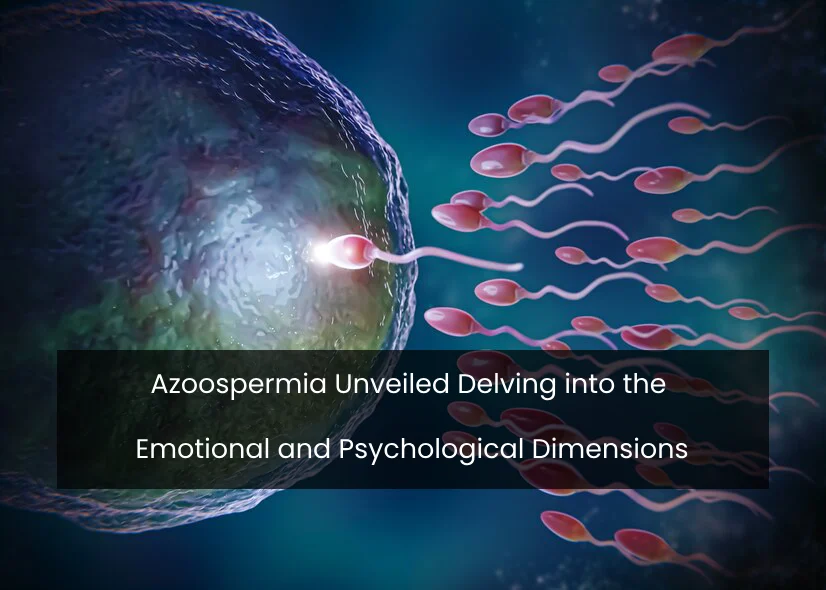Azoospermia Unveiled Delving into the Emotional and Psychological Dimensions
Azoospermia, a condition characterized by the absence of sperm in semen, strikes at the core of one’s aspirations for parenthood. While much attention has been given to the physiological aspects, the emotional and psychological dimensions of azoospermia often remain veiled. In this exploration, we uncover the profound impact this diagnosis can have on individuals and couples, shedding light on the emotional journey they navigate.
The Shock of Diagnosis:
The moment a man receives the diagnosis of azoospermia can be a seismic shock. Dreams of fatherhood, once seemingly within reach, suddenly appear distant and uncertain. Questions about one’s masculinity and worthiness as a partner may flood the mind. This emotional whirlwind can be overwhelming, leaving individuals grappling with the sudden shift in their life trajectory.
Navigating the Stigma:
Azoospermia, like many fertility-related issues, carries a stigma that amplifies the emotional burden. Societal expectations surrounding virility and traditional gender roles can exacerbate feelings of inadequacy. Men may internalize these expectations, leading to a sense of failure and shame. Breaking down these societal barriers and seeking support becomes a crucial step in the emotional healing process.
Couples’ Struggles:
For couples facing azoospermia, the emotional journey is a shared one. The initial shock often gives way to a mutual quest for understanding and acceptance. Conversations about alternate paths to parenthood, such as adoption or assisted reproductive technologies, become essential. Maintaining open communication is key to navigating the emotional rollercoaster and forging a united front in the face of adversity.
The Emotional Toll on Relationships:
A diagnosis of azoospermia can strain even the strongest relationships. Intimacy may become a source of tension as both partners grapple with their emotions. Addressing the emotional toll on the relationship requires patience, empathy, and a commitment to shared goals. Seeking the guidance of a therapist or counselor can offer a safe space for couples to express their feelings and strengthen their bond.
Grieving the Loss:
Azoospermia often represents the loss of a envisioned future. Grieving this loss is a natural and essential part of the emotional healing process. It’s common for individuals and couples to experience a progression through stages that include denial, anger, bargaining, depression, and, ultimately, acceptance. Recognizing and validating these emotions is crucial for moving forward and finding resilience in the face of uncertainty.
Support Systems and Coping Mechanisms:
Building a robust support system is vital for individuals and couples facing azoospermia. Connecting with others who have experienced similar challenges, either through support groups or online communities, can provide a sense of solidarity. Additionally, exploring coping mechanisms, such as mindfulness, yoga, or creative outlets, can help alleviate stress and promote emotional well-being.
Professional Guidance:
Seeking the guidance of mental health professionals experienced in fertility issues is a proactive step in addressing the emotional and psychological dimensions of azoospermia. Therapists or counselors can provide tools for coping with stress, facilitate communication within relationships, and offer strategies for maintaining a positive outlook during the fertility journey.
Azoospermia is not merely a medical condition; it is a complex tapestry of emotions and psychological challenges. By unveiling the emotional dimensions of azoospermia, we can foster a more compassionate and supportive environment for those affected. Through open dialogue, destigmatization, and access to mental health resources, individuals and couples can embark on a journey of emotional healing and resilience, redefining their path to parenthood.

